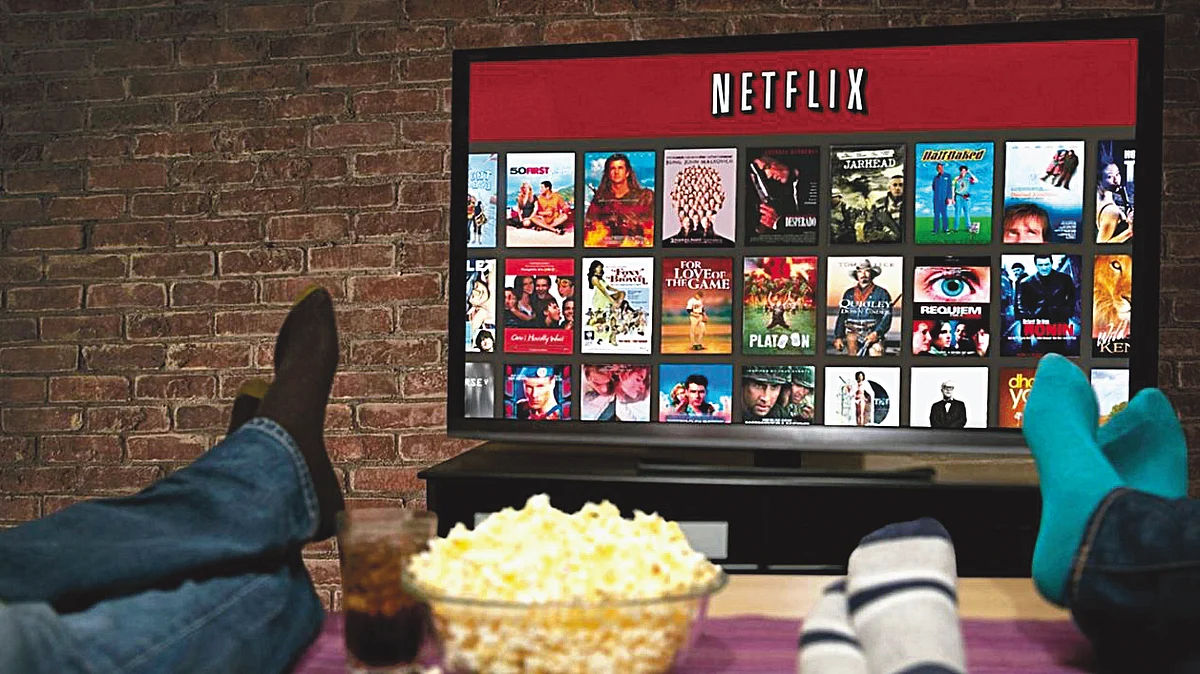Binge culture: The different viewpoints
Binge watching is fast changing India’s entertainment scene. The emergence of binge culture is not just impacting the end consumers, it is also pushing the artists to expand their horizons

Binge watching is fast changing India’s entertainment scene. For years, cinema has been enjoying an undisputed status over its poor cousin Television. While one agrees with the classification of cinema and Television as two different mediums, it cannot be denied that with the advent of new age content, the line between the two is fast fading. In fact, today we can easily look at the majority of binge-worthy international television/web series as 8 or 10 hour films and that’s primarily because of the topnotch production values and the grammar associated with them. The quality of production in binge-worthy programmes is so high that they are closer to cinema than TV, even in terms of how they are directed. This is in stark contrast to some of the daily soaps we have grown accustomed to watching on Indian Television over the years. The advent of streaming services like Netflix and Amazon Prime has given rise to Indian original programmes like Sacred Games, Breathe, Inside Edge, and, most recently, Ghoul. The greatest marker of these shows is the cinematic quality associated with them. And that’s proving to be a real game changer for the Indian entertainment industry at large.
There is a sense of addiction that one generally associates with binge watching. Generally, we watch a movie in one sitting of 2-3 hours but typically a series engages us for much longer. “Certainly, I engage in binge watching. Stranger Things is one such Netflix series that actually made me binge. I watched the entire two seasons in one night, starting at 8:00 PM and completing it around 12:00 PM the next day with a short break in between. The desire to reach the climax of the show urged me to run this marathon,” reveals Delhi-based professional Ambreen Agha.
The emergence of binge culture is not just impacting the end consumers it is also pushing the artists to expand their horizons. Sanjib Dey, the director of the award-winning multilingual film III Smoking Barrels explains, “I think the rise of binge culture poses a big challenge for the artists to make themselves platform agnostic. Putting together an 8 to 10 hours of quality content for every season requires a different level of creative commitment. However, at the same time, it provides them with a wonderful opportunity to reinvent themselves as per the changing needs of time.” But what does it take to deliver in the wake of the ever increasing demands that modern-day content creators are faced with? “Binge watching is fundamentally not a healthy thing but the fact that it is so prevalent could be seen either as a testament to the fact that a lot of the narratives are that engaging or that they are being engineered to be more addictive like video games and hence keep you hooked. So anything that borders on addiction is something that needs to be watched out for, this goes for both viewers as well as creators,” says actor Vivaan Shah.
The emergence of binge culture is not just impacting the end consumer, but also pushing artists to expand their horizons
Although India’s entertainment industry has a great scope for embracing new trends, the rise of binge culture is bound to have a strong impact on cinema viewing in the longer run. “Platforms like Netflix are ruling over people’s minds which may affect big screen movies in the days to come. Like, I have started visiting theaters rarely because I have everything I want on my phone screen,” says Leena Duwadi, an Indore-based professional. One of the key factors that promote binge watching is anticipation. “Serials, since they lead from one episode to the next and make one anticipate future developments, discourage breaks in viewing. At the same time the binge watching this promotes can be mentally exhausting. If binge watching happens on weekdays at night, this could severely affect performance in the workplace. On weekends, it could usurp the place taken by other forms of visual entertainment. I think it will bring down film watching in theatres and be detrimental to film watching,” opines the National Award-winning film critic MK Raghavendra.
But even the staunchest critics wouldn’t deny that the rise of new platforms like Netflix has led to greater accessibility and reach. Often, it is not always possible for smaller budget movies to get the desired numbers of screens for release. Sometimes, the makers may feel that a two hour film will not do justice to the story and so they may choose to make a web series instead. Also, this allows greater security to the producers to recover their money as oppose to the film. Today, viewers can watch the best of the content on their smart phones and they can choose it from a wide array of options unlike the old days when going to the cinema was the only option. Not to mention the soaring ticket prices which burn holes in the pockets of the viewers. So it can be said safely that binge culture, despite all the caveats and apprehensions, is here to stay.
Follow us on: Facebook, Twitter, Google News, Instagram
Join our official telegram channel (@nationalherald) and stay updated with the latest headlines